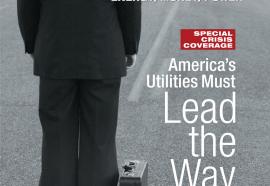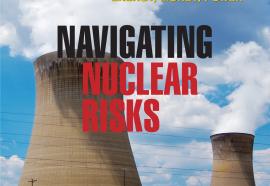A Time to Lead
The financial crisis calls on utilities to invest in America’s future.
True story: At the dinner table recently, my 11 year-old son—who’s running for 6th grade student council—bemoaned the arguments he’s having with other candidates. I asked what they’re arguing about, and he said “Everything.” “Oh really? What’s your position on the mortgage bailout.” “It sucks!” he blurted. I countered, “But if we don’t do it, the financial system will collapse.”








